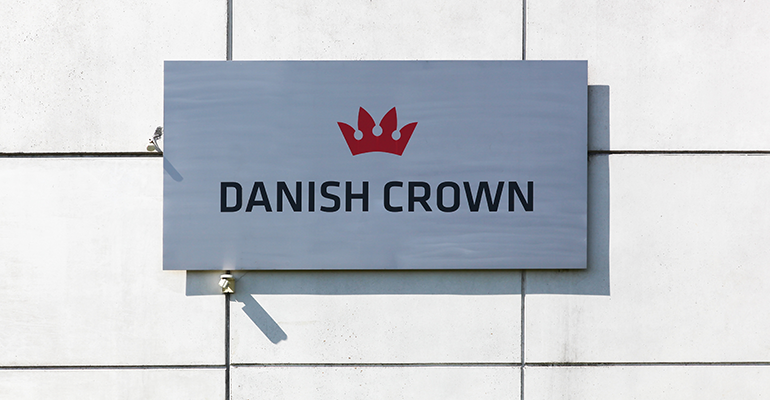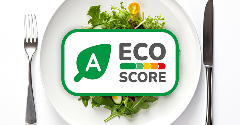News
Danish Crown’s ‘climate-controlled’ claim misleading, court finds
20 Mar 2024Leading EU pork producer Danish Crown has been found guilty of greenwashing by misleading consumers with marketing claims about its “climate-controlled” pork and “climate-friendly” production.
In the case of Vegetarian Society et al. of Denmark v Danish Crown, Danish non-governmental organisations (NGOs) including Danish Vegetarian Association and the Climate Movement in Denmark sued Danish Crown, a leading pork producer in the EU.

Bringing the claim in May 2021, the NGOs claimed the company deceived consumers through one of its marketing campaigns, which said that the pork is “more climate-friendly than you would think” and that its pork production is “climate controlled”.
On 1 March 2024, the court ruled that the first phrase was not considered misleading, however, it found the second phrase violated section five of the Danish Marketing Practices Act for misrepresenting the environmental impact of the company’s products.
The court found that Danish Crown had put round pink stickers on its packaging claiming pigs were ‘climate-controlled’. The label had not been subject to independent control, restricting a typical consumer’s ability to decide about the product’s environmental benefits. The company stopped using the label in 2021.
“I note that the judgement supports Danish Crown on three out of four claims,” says Nør-Pedersen. However, the court agreed with the NGOs that Danish Crown’s Climate Road programme was strong enough to warrant labelling the meat ‘climate-controlled’.
“The court acknowledges that the statement ‘Danish pork is more climate-friendly than you think’ is well-supported with the necessary documentation in the specific case,” says Nør-Pedersen. It is crucial for Agriculture & Food and our member companies that this can be fulfilled,” Nør-Pedersen adds.
A clear message
Industry campaigners, including Danish Agriculture & Food Council, Vegetarian Society of Denmark and Climate Movement have highlighted how the court ruling sends an emphatic statement on the pig, meat and wider food sector’s legal stance on greenwashing claims.
“The case is of principle, and the judgement emphasises the need for clearer rules on how companies can communicate about the measures they take to produce food with a lower climate footprint,” Flemming Nør-Pedersen, director of Danish Agriculture & Food Council told Ingredients Network.
In a move that may set a precedent for other companies’ communication approach and marketing claims about their sustainability initiatives, the court ruling has loudened the calls to end greenwashing.
The cooperative company, which over 6,000 Danish farmers own, is committed to lowering greenhouse gas (GHG) emissions by 50% by 2030. The court ruling highlighted greenwashing, with the claimants successfully arguing that the Danish Crown misrepresented its climate impact and violated the Marketing Act.
 © AdobeStock/Ricochet64
© AdobeStock/Ricochet64
Danish Crown denied the claims. With its campaign, the company sought to communicate that its farmers actively work to lower their carbon dioxide (CO2) footprint and that external players monitor their CO2 reduction targets. Danish Crown argued that as the pigs were raised on farms with a “clear strategy for reducing CO2 emissions”, this did not amount to misleading its consumers.
Wider sustainability stance
On 22nd November 2023, the same week the court case commenced, Danish Crown released its annual statement for 2022/2023, communicating the company’s “strong revenue growth amid challenging conditions.” The year marked the first time the company published an integrated annual report covering financial statements and environmental, social, and governance (ESG) reporting.
In the report, Danish Crown highlighted its “high climate ambitions,” confirming it obtained approval for its climate targets from the UN-backed Science Based Targets initiative in November 2022. It also highlighted that it has prepared an ambitious science-based timetable for a more sustainable future by 2030.
Danish Crown plans to lower its global emissions by 42% in Scopes 1 and 2 and by 20% in Scope 3, representing approximately a reduction of 2.5 million tonnes of CO2 between 2020 and 2030. To meet the Danish parliament’s ambition of reducing emissions by 70%, Denmark needs to decrease emissions by 20 million tonnes of CO2 from 1990 to 2030.
“Our climate ambitions are a central tool in our efforts to consolidate our position as one of the leading food companies in Europe,” Jais Valeur, managing director of the Danish Crown said at the time. “We must help our customers reduce their environmental footprint, and we are currently negotiating partnerships with several multinational customers based on our climate ambitions and detailed reporting,” Valeur added.
Sustainability in Denmark’s pig produce
Denmark is globally recognised for its pig production and pig meat processing, almost doubling its output over the past 30 years due to a high degree of specialisation and continuous. The agricultural sector contributes 22% to the total Danish export of goods, the Danish Agriculture and Food Council reported in its Denmark – a Food and Farming Country 2023 report.
According to the report, Denmark has one of the world’s most resource-effective and climate-efficient food production systems. It stated that environmental sustainability is a central point in Danish pig production, which is steadily improving.
In February 2024, Ernst Young reported how companies can increase the credibility of climate claims and develop consumer trust. As the ESG reporting space continues to shift, the consulting services provider says companies can enhance their sustainability claims’ credibility by adopting standardisation, due diligence over procurement decisions, goal setting, progress reporting, and assurance.
Related news

UK Government overhauls childhood obesity strategy
21 Nov 2025
The UK Government has announced a new package of measures designed to reverse the nation’s childhood obesity epidemic following the release of statistics revealing the scale of the crisis.
Read more
How younger consumers are redefining ingredient choices and rejecting brand loyalty
18 Nov 2025
Gen Z and millennial consumers’ preferences for transparency, functionality, and purpose are “redefining the very nature of consumption itself”, says SPINS.
Read more
New UPF standard hoped to offer consumers ‘coherence and clarity’
10 Nov 2025
Ingredients companies are being urged to enter “a new era of partnership and innovation” following the launch of the industry’s first non-UPF verification scheme.
Read more
Ingredient quantities mislabelled on popular protein bars, independent tests show
5 Nov 2025
Some popular protein bars contain more fat, carbs, and/or sugars than claimed on their labels, independent nutrition testing reveals.
Read more
Does promoting protein content push up plant-based sales?
27 Oct 2025
Promoting the protein content of meat-free products is a more effective sales strategy than adding carbon labels, a study of UK bakery chain Greggs suggests.
Read more
Supplement shoppers seek storytelling and science-backed suppliers
17 Oct 2025
Supplement consumers want specific health benefits that focus on prevention and personalisation, according to data from HealthFocus International.
Read more
Food fraud risks rise as brands fight economic and environmental headwinds
10 Oct 2025
Climate change, geopolitics, regulations, and demand for sustainable products are pushing up food fraud and adulteration risks, warns a world-leading food fraud expert.
Read more
The growing appeal of nutrient-dense food claims
2 Oct 2025
Nutrient-dense claims are rising as consumers reject the “empty calories” of UPFs in favour of products that provide meaningful nutrition with every calorie, Mintel data shows.
Read more
What does MAHA mean for the US nutraceutical industry?
30 Sep 2025
Industry associations have expressed mixed reactions to new policy directions on health and nutrition under the Make America Health Again (MAHA) banner.
Read more
Eco-Score labels improve consumer identification of sustainable foods
22 Sep 2025
The presence of a front-of-pack Eco-Score label improves consumers' accuracy in identifying sustainable food products from 52% to 72%, a study suggests.
Read more